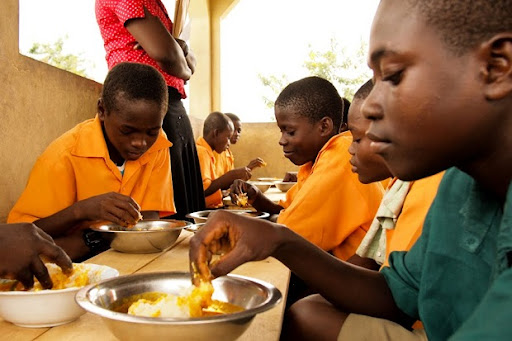Ghana School Feeding Programme: Lifeline or Liability?
The Ghana School Feeding Programme (GSFP), hailed as a landmark initiative since its inception in 2005 under President John Agyekum Kufuor, has undoubtedly fed millions of schoolchildren and provided employment opportunities to thousands.
However, a recent Performance Audit Report by the Auditor-General, released in September 2023, reveals troubling issues that raise the question: Is this program truly serving its purpose, or has it become a hotbed of mismanagement and inefficiency?
The GSFP’s scope has undeniably grown. From its modest beginnings, it now feeds four million pupils across over 12,000 public basic schools. It has also created jobs for more than 10,850 caterers and 32,000 cooks. But as the numbers swell, so do the challenges, particularly around funding and the quality of meals provided.
Take, for example, the cost per meal. In 2018, it was a meager 80 pesewas (GH¢0.80). By 2023, this increased to GH¢1, with talks of raising it further to GH¢1.20. Yet, the National School Feeding Caterers Association argues that even this isn’t enough to provide nutritious meals, suggesting GH¢3.50 per child instead.
This discrepancy raises serious questions about the program’s sustainability and the government’s commitment to the children’s welfare.
The Auditor-General’s report highlights significant financial mismanagement that plagues the GSFP, casting a shadow over its achievements. On August 28, 2023, GH¢1,950,590.00 was supposedly disbursed to NAFCO, yet there’s no evidence of this transaction.
Moreover, overpayments amounting to GH¢2,321,042.05 to caterers have not been recovered. Wrongful payments totalling GH¢274,235.29 were made to non-contractual caterers, and a staggering GH¢831,776.00 from the sale of Caterer Application Forms remains unaccounted for. Such fiscal irregularity undermines the program’s credibility and effectiveness.
The quality and quantity of meals are another sore point. An analysis from 2019 to 2022 revealed that 23% of sampled schools failed to provide quality meals. In the Greater Accra Region alone, 28.8% of schools served substandard food.
The situation is even more dire when it comes to meal quantity, with 68.2% of schools not providing adequate portions. In the Ashanti Region, an alarming 77.6% of schools fell short in this regard.
These challenges prompted the Auditor-General to recommend that the National Secretariat engage with the Ministry of Finance and other stakeholders to set a realistic feeding fee. Improved procurement processes and debt management plans were also advised to ensure that only eligible and capable caterers are selected and that suppliers are paid on time to maintain a steady supply of food.
The GSFP stands at a crossroads. While its mission to feed and educate Ghana’s youth is noble, the program’s current state leaves much to be desired.
Without addressing the rampant mismanagement and inadequate funding, the GSFP risks failing the very children it aims to support. As citizens, we must demand transparency, accountability, and a genuine commitment to our children’s futures.



